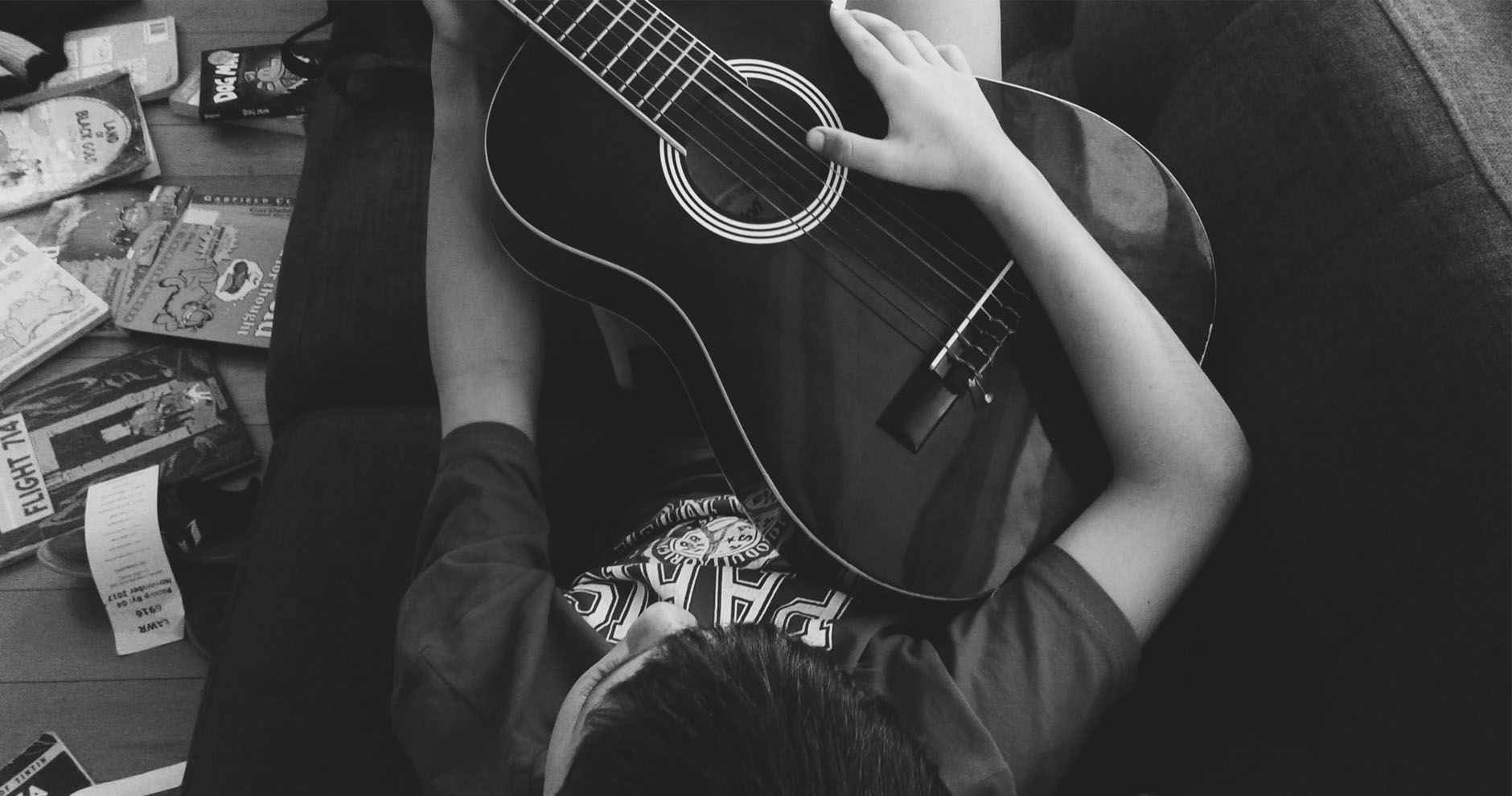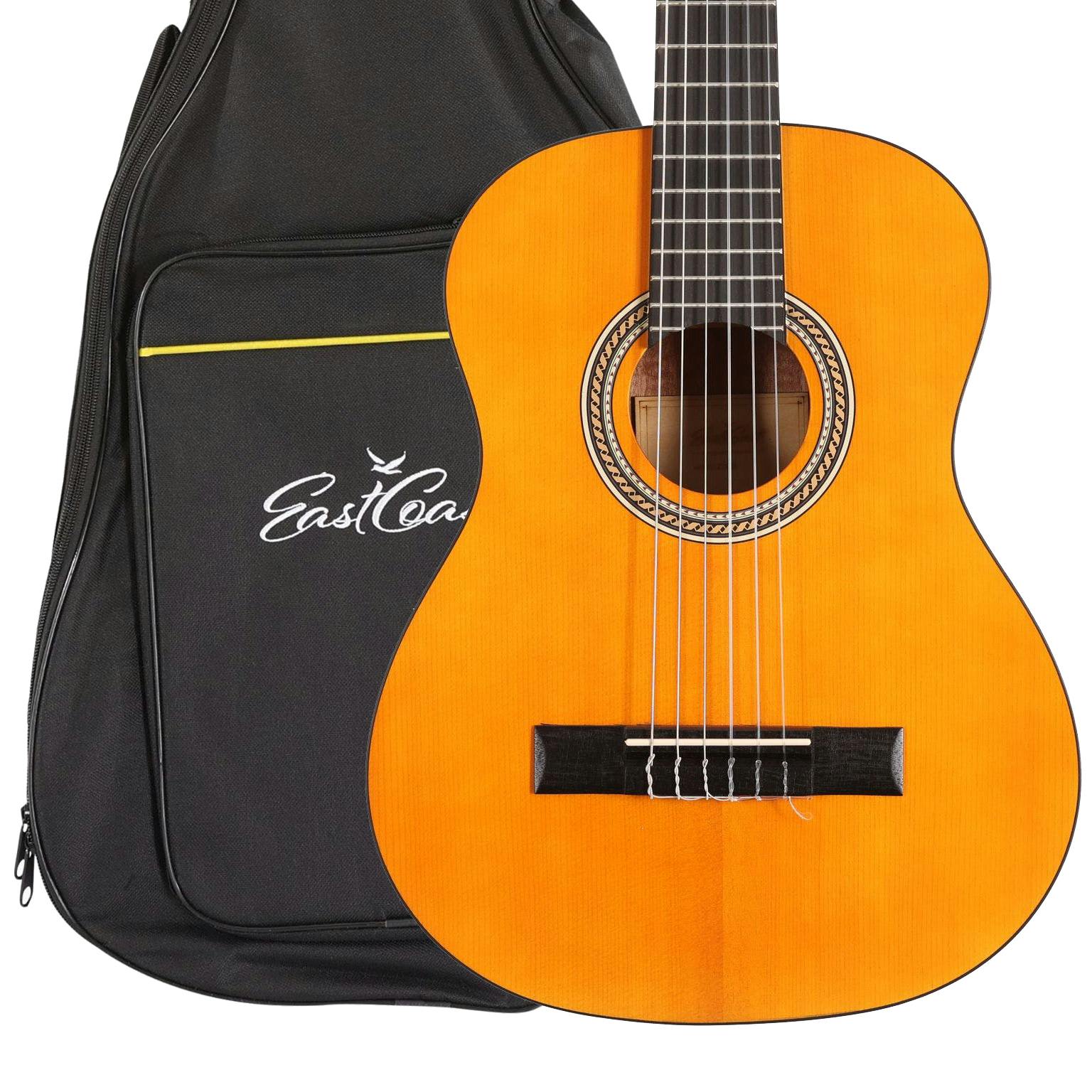The Benefits of Playing an Instrument
It’s important to bear in mind the benefits of learning an instrument when trying to figure out how to find the right balance. Various studies have concluded that musical instrument lessons can have a hugely positive effect alongside academic and curricular schedules:
- Relaxation: Homework and revision routines can be taxing, especially over long periods of time. This can have a negative effect, slowing down the intake of information. Having a musical instrument to turn to for practice or recreational time can help break up this routine and keep the mind fresh and absorbent.
- Mental Stimulation: Music is closely intertwined with academic subjects. Learning an instrument involves recognition of patterns, quick maths and memorising information — subconscious skills that can be applied to educational subjects. Music lessons can actually help with schoolwork!
- Achievement & Delayed Gratification: A lack of reward and regular milestones in progress can be disheartening. Music lessons help enthuse students by providing achievable goals, regular feedback and positive reinforcement. It can also help teach students the importance of working gradually, or in smaller steps, towards a bigger achievement.
- Motor Skills & Co-ordination: Physical stimuli are always beneficial, but particularly important at a young age. Learning guitar, piano, drums or pretty much any other instrument involves hand-eye coordination, development of muscle memory, and much more. This can have a hugely positive effect on everything from football practice to handwriting!
- Social Skills: Frequent interaction with musical peers, confidence in live performances, and a team-player mentality are just some of the important social skills that can be built up through music lessons.
- Enthusiasm for Learning: Many children struggle to take an interest in academic pursuits, and learning an instrument can be the perfect gateway for some to develop an enthusiasm for learning. Like any other habit, enthusiasm can be trained and will crossover into other areas of education.

Effect on School
Rather than thinking of these as “the negatives”, you should take these into consideration objectively. Let’s look at some of the more commonly raised issues:
Time
Academic work, revision and big projects can already be time-consuming — so adding an instrument into the mix can potentially have a big effect. Careful management of time is essential. Use instrument practice to break up academic work. As mentioned earlier, this can improve workflow and keep the mind fresh and stimulated. Try and stick to timed sessions. 30-60 minutes of practice and no more. This will help with discipline and ensure that your child can practice regularly and consistently.
Interruption
If you’re considering lessons for your child whilst in school, you may be concerned about clashing with lessons. It’s always worth speaking to members of staff about lesson times and the possibility of catch-up sessions. Alternatively, a lot of private tutors and establishments offer lessons exclusively outside of school hours! Ultimately, it’s whatever suits your schedule the best. School-time lessons mean more time for practice out-of-hours, whereas lessons outside of school time means no interrupted lessons.
Mind Space
Life can be busy at the best of times, and school is a perfect opportunity for your children to pick up on organisational skills. They’ll have multiple things to be focusing on at once, such as deadlines, revision, important dates and so on. Again, adding an instrument to this mix can make things a little harder to juggle. A very common fix for this is to have a separate place to make notes specific to music lessons. This could be a notebook, an app, a pocket diary, etc. Encourage your child to use this tool as their outlet and organiser so that they can continue to focus on everything else. This is also useful for keeping track of practice routines and observing progress, which is a great motivational tool.
Enjoyment
Although there are many benefits to learning a musical instrument, enjoyment is almost essential. Get to know the tutor you or your child will be working with, as this can make a huge amount of difference. If possible, spend time now and then reflecting on practice routines and getting feedback. This can prove challenging, but has huge motivational merit.
Academic Results
If your child is spending lots of time practising their instrument, they might neglect their academic studies. This can sometimes be a cause for concern when it comes to grades. However, as long as practice time is somewhat regimented and consistent, music lessons can actually improve motivation, intake of information, memory, problem-solving and more. Not only that, but musical grades can look great on a CV or University application — even if music is not what your child pursues in higher education and beyond.

The Teacher’s Perspective
In my experience, any decent teacher will do their best to be flexible and understanding of your needs. This could mean anything from a change in schedule, an important deadline coming up, or taking onboard any concerns. Most tutors would have experienced all of this before and will be prepared to provide an adequate solution.
The teacher will also be the one who spends the most time with your child during their learning process. This means they’ll be the ones seeing and tracking progress and it’s vital that you, as a parent, are kept in the loop. Ask for regular meetings or have a catch-up every now and then. Most teachers will be more than happy to produce reports, exchange emails, or have a chat after lessons.
School Holiday Time
Holidays and term-breaks are often a welcome relief for students and teachers alike. Chances are that your child will relish the amount of spare time they have, despite having a backlog of homework to trawl through.
They provide an opportunity; a break from academic study which could mean a chance at a more relaxed approach to music. Try and make the most of this by encouraging your child to continue playing over the holidays, but perhaps more recreationally. Again, communicate with the teacher and ask what they have in mind for holiday work — and don’t be afraid to ask for any recommendations. Games, fun songs, apps, challenging exercises, and so on. It might even be a good opportunity for the student to pick their own goals, as they may be more inclined to achieve targets if they’ve set them themselves.
Summary
Finding the right balance between playing an instrument and academic studies can actually be straightforward, but it’s vital that you’re asking the right questions. How will your child benefit from learning an instrument? What are the implications of committing to lessons? When can you fit lessons in? Who will they be learning from?
There are numerous benefits, but there are also ways of making the most of them. Most important of all is that they enjoy learning. For me, this was the most fun hobby in my routine, as well as for my students. If your child enjoys it, it’s one step towards finding a good balance.
Want to Learn More?
If you enjoyed this ready, check out our other Learn articles.
Looking for a new instrument? Have a browse on the Andertons website, particularly on our Best Musical Instruments for Beginners page!
Our Favourite Beginner Guitars












Responses & Questions